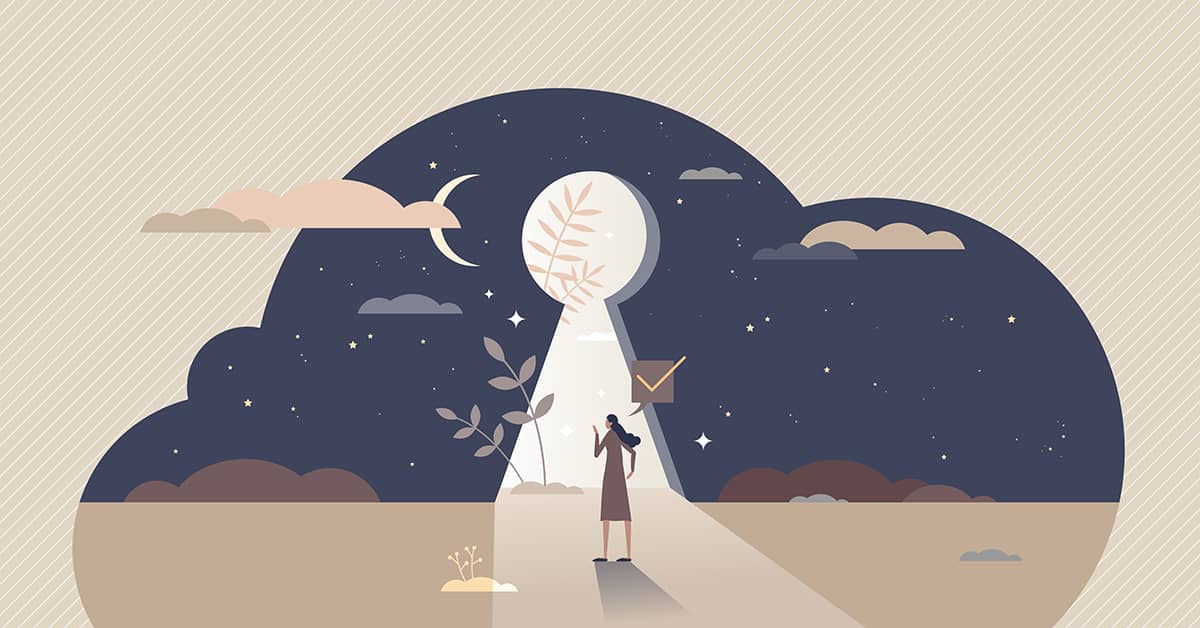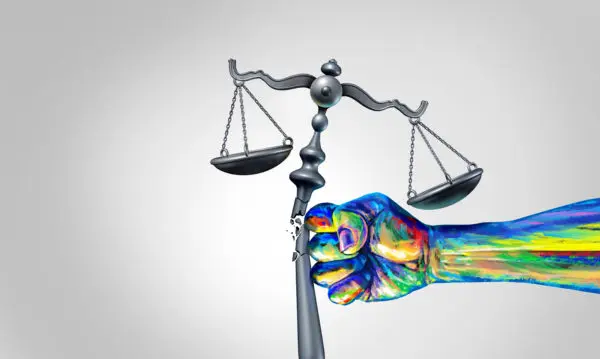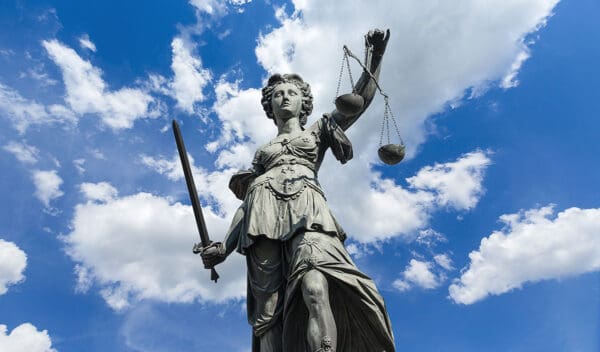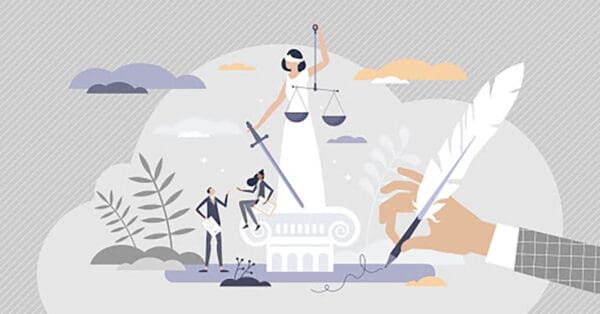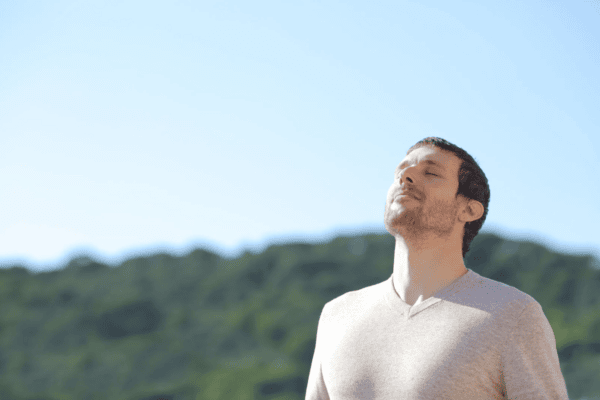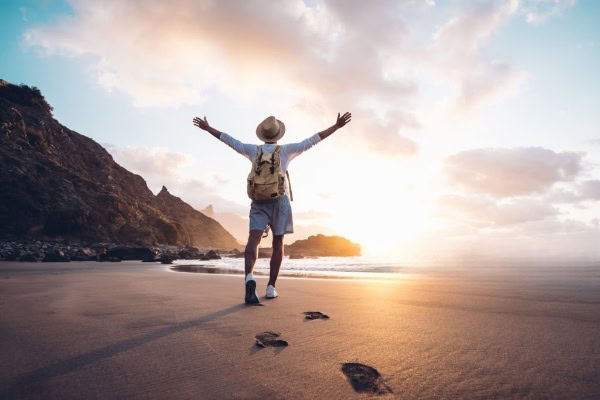Ibogaine has a long history of use and prohibition in the United States. Federally, ibogaine is a Schedule I substance (meaning ibogaine is illegal and carries the strictest legal consequences) and those looking for ibogaine treatment usually end up at treatment centers in Mexico or Central America, where ibogaine is unscheduled. However, inspired by advocates and their constituents, lawmakers and governors occasionally come forward with the idea to legalize, decriminalize, or study ibogaine. Usually, these bills don’t make it to a hearing, but over the last several years, ibogaine has started to make some headway in mainstream America, and cities such as Oakland, CA have decriminalized possession of ibogaine.
Before we dive into the potential benefits of decriminalization and the recent U.S. cities that have changed their laws regarding ibogaine, we’ll review the term and relevant legal issues to consider.
Decriminalization: What Does It Mean?
Like other times in U.S. history, a plant-based treatment option is being blocked by drug laws that deny long-standing, verifiable medical benefits. Currently, ibogaine is a Schedule I substance, the most strict classification with the most strict consequences. According to the DEA, “Schedule I drugs, substances, or chemicals are defined as drugs with no currently accepted medical use and a high potential for abuse.”
In terms of medical ethics, the decriminalization of ibogaine would imply that practitioners and clients could seek life-saving ibogaine treatment in the United States without fear of federal prison. A civil fine could replace jail time, and while not ideal, decriminalization could impact people currently suffering from opiate and other dependencies, as well as other mental health issues such as PTSD and depression. But, ibogaine can be risky if practitioners are inexperienced or clients are high risk, and people are hesitant to allow patients sovereignty over their treatment decisions.
Following global regulations that banned Lambarene, an early pharmaceutical, ibogaine was made illegal through the Controlled Substances Act in 1970. Though banned in various countries, primarily throughout Europe, ibogaine research and therapy continued over the decades, leading to a large body of evidence that demonstrates the therapeutic potential, toxicity, and safety profile of ibogaine.
However, because ibogaine cannot be patented as a drug, it is unlikely to be brought to market through the current FDA drug development processes. At least, not in a way that legitimizes the existing network of unregulated ibogaine practitioners who draw from the traditional iboga rituals, medical protocols, and early psychedelic therapy studies — not to mention the direct training of experienced, world-renown ibogaine providers who work in countries where ibogaine is unscheduled.
While the legalization of ibogaine would require the development of regulatory bodies and oversight, a process that would take time, decriminalization could immediately open up limited access to ibogaine for medicinal use. Meanwhile, regulations could be sorted out in partnership with a commission of experts, physicians, providers, and patients. While ibogaine can be risky, it is often the last resort for treatment for people seeking it, and many organizations have been advocating for its use for decades.
History of Ibogaine Legislation at the State Level
Health experts and patients are not the only ibogaine advocates. Even state legislatures have made efforts to draft laws that would support the development of ibogaine treatment.
In 1992, New York State Senator Joseph Galiber proposed a bill to encourage the state to investigate ibogaine as a treatment for cocaine and heroin addiction, but the measure never left the committee. Later, in 2015, Vermont State Representative Paul Dame and Joseph Troian introduced H.387, a measure related to “dispensing ibogaine for substance abuse treatment.” The group Vermonter for Ibogaine Research presented testimony at the hearing, pointing to research demonstrating that ibogaine does not have a potential for abuse, is able to treat multiple addictions, and is even proving to be beneficial for Parkinson’s Disease.
Ultimately, the bill did not pass, but it did start a conversation on how states might best integrate the existing network of ibogaine providers within the current addiction treatment models. A 3-year pilot program was proposed that would have directed people to ibogaine programs if they had a severe and persistent substance use disorder that was verified by a patient-doctor relationship. Presently, Vermont is considering full drug decriminalization, including all Schedule I drugs such as psilocybin, mescaline, DMT, and ibogaine.
Ibogaine and State-Wide Decriminalization Efforts
Following the passage of Oregon’s Measure 110 in 2020, which decriminalized personal use amounts of Schedule I drugs, other states are beginning to follow suit. However, keep in mind that decriminalization measures alone do not open up access to ibogaine treatment.
Sen. Scott Wiener (D-San Francisco) and three cosponsors recently filed Senate Bill 519, which would make it legal for persons 21 and over to possess and share psilocybin and psilocyin, DMT, ibogaine, mescaline, LSD, ketamine, and MDMA. The bill would also mandate that the Department of Public Health create a working group to make recommendations to the legislature on the regulation and therapeutic use of these substances by January 2024.
If enacted into law, California’s SB 519 would expunge records of people who have been criminally prosecuted for psychedelic substance charges. On April 6th, 2021, the bill passed a senate hearing. At the same hearing, a separate bill proposing safe consumption sites to prevent overdose deaths from substances like opiates was also passed.
Vermont’s statewide decriminalization bill would similarly address Schedule I substances. Those diagnosed with substance use disorders could potentially avoid civil penalties if willing to submit to a substance use disorder screening. This may serve as a way to connect people struggling with substance use to resources. However, such a law may also result in coerced treatment if not applied effectively and ethically to all people.
Massachusetts is also approaching a state-wide decriminalization measure that would open up ibogaine for personal use and possession in an effort toward ending prohibition. Titled “An Act Relative to Harm Reduction and Racial Justice,” the Massachusetts measure would establish a task force to research the viability of a psychedelic marketplace — a community-directed ibogaine clinic could theoretically be included in such a vision.
City Level Ibogaine Decriminalization Efforts
Over the last few years, many cities in the United States have passed decriminalization acts for iboga and ibogaine, alongside other natural plant medicines also classified as psychedelics. This movement is an effort to remove criminal penalties associated with plants that are used as medicine.
Oakland was the first U.S. city to decriminalize ibogaine. Councilman Noel Gallo introduced the bill after being approached by Decriminalization Nature, reporting that his family – half of which who are Native American – have a long history of entheogenic plant use and that his nephew, who is a veteran of the Iraq War, used plant medicines to get his life back together after being severely injured in Iraq.
In June 2019, the city council voted unanimously to remove criminal penalties associated with Schedule I plants and fungi. This was a watershed moment, and the first time a grassroots coalition organized on behalf of multiple plants medicines. The City of Oakland held a hearing inviting anyone to testify on their experiences with the psychedelic substances on the bill. We reached out to Nicole Atkinson, an ibogaine advocate, to talk about the hearing. Atkinson said she attended to share her story with ibogaine and methamphetamine. She described a hearing that was packed full of ibogaine activists, including clients who had emotional stories to share and even providers who had flown from Mexico to talk about the benefits of ibogaine. Atkinson said it was “beautiful and emotional” and also that it “felt good to be heard.”
Aside from state governments, grassroots efforts at decriminalizing ibogaine have recently increased thanks to the work of organizations like Decriminalize Nature. They claim that 15-20 cities are actively engaged in dialogue around psychedelic decriminalization. With the support of a coalition of advocates, Oakland, CA, decriminalized ibogaine in June 2019. Ibogaine was later decriminalized through similar Decriminalize Nature campaigns in Santa Cruz, CA, in February of 2020. Shortly after, ibogaine was decriminalized in Ann Arbor, Michigan, and in Washington D.C. in November of 2020.
In the first four months of 2021, ibogaine was decriminalized in Somerville, Northampton, and Cambridge, Massachusetts, and Washtenaw County, Michigan. It would seem that with statewide efforts and city-specific efforts, that decriminalization is gaining traction and that ibogaine is on its way to being legitimized.
However, before we get ahead of ourselves, it’s also crucial to assess the downsides of decriminalization.
Reasons That Ibogaine Decriminalization Might Be Risky
While there are plenty of reasons to advocate for the immediate decriminalization of ibogaine, there are some points of concern worth noting in the big picture.
For some, city-by-city decriminalization efforts are simply too slow. What is most needed is nationwide efforts at rescheduling — and even restructuring how we approach drug laws and treat people who use drugs.
Unlike its Schedule I status stipulations, ibogaine has demonstrable medical benefits and due to side-effect and risks, it seems unpleasant over recreational. It can be toxic if used in unsafe settings, but blood work and an EKG can mediate some risk of use, and if clients are dosed and monitored by an experienced provider and treatment center, most risk of use can be excluded.
Unfortunately, while possession of ibogaine is decriminalized, providing ibogaine to others is not protected from prosecution. Ibogaine providers may not have a clear place in the decriminalization movement, leaving people who want to participate in ibogaine treatment alone in their endeavors. Some underground providers in the U.S. attempt to protect themselves with a signed statement verifying the client provided their own medicine, and the practitioner was only present to make sure the individual was not alone in case of emergency.
In the event of a fatality, a liability waiver could potentially protect the practitioner from any felony charges, but such cases have little precedent if any. If a sitter were licensed as a health professional, they could be at risk of losing their license for sitting with a client. Some underground providers have expressed concern that they could be charged for impersonating a medical professional.
For patients and clients, decriminalization means there’s no risk of criminal felonies. Still, it could mean civil fines that compound beyond a manageable level, especially for people working through substance dependencies. If in a state where mandatory diversion programs exist, then a person who is not ready or interested in treatment could be forced into a situation that ultimately proves more harmful.
Without harm reduction measures, thorough education about ibogaine, and a network of experienced ibogaine professionals willing to consult with individuals determined to pursue a DIY treatment path, there is also the likely possibility that someone could get hurt during an adverse reaction — or in the worst-case scenario, a fatality. Aside from the tragedy that these situations come with, any ibogaine fatality that occurs during decriminalization has the potential to reinforce the stigma that ibogaine often has, possibly pushing the medicine back to a total ban.
The Ultimate Benefit of Decriminalization
As it stands currently, ibogaine treatment is inaccessible to many. Drug laws are less about safety and more about controlling who has the right to produce, sell, and profit from the sale of drugs.
In this regard, an additional benefit to ibogaine decriminalization is that people who don’t have the means or are unable to travel but are in a situation of dependency or mental health crisis would have the chance to access life-saving treatment.
Many people who are familiar with ibogaine’s benefits hope this is a beginning of a more significant movement that could include legalization, treatment, and research. But, some people view ibogaine treatment as “replacing one drug with another drug,” despite ibogaine not needing repeated doses. This residual stigma toward people experiencing substance dependencies could be addressed, in part, by decriminalization efforts.
Accessibility and the Future of Community-Based Ibogaine Treatment
While decriminalization usually means more access to something, many people in the ibogaine industry who understand the risks of ibogaine treatment worry about the risks of fatalities if decriminalization is not accompanied by education and support. This is a valid concern.
If medical professionals and ibogaine providers work together to form networks that prioritize harm reduction within ibogaine treatment, providers could perhaps act as harm-reduction consultants that support people seeking ibogaine treatment. More research efforts would hopefully expand the number of ailments ibogaine treatment could address. Harm reduction organizations could work off a sliding scale model or mutual aid fund. Providers could even be in contact with a “sitter” during someone’s session to provide advice. Informed consent contracts could be signed by the individuals seeking out treatment to protect the practitioner from liability. While this won’t reduce all risk, it can serve to mitigate some while empowering individuals to reconcile their relationships with substances.
